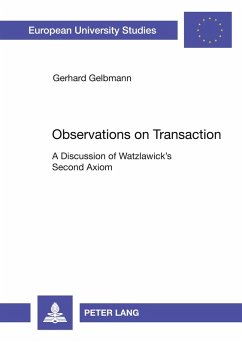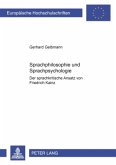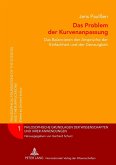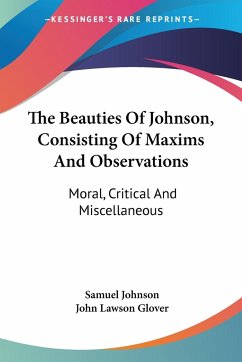This book deals with two aspects of interpersonal communication - the content aspect and the relationship aspect. Concepts like meta-communication are analysed, as well as reductionism, social system or aspect. The study criticizes approaches toward a Philosophy of Communication which start from notions like Ordinary Language or Language Instinct or Communication as Oriented Toward (Mutal) Understanding. This essay gives a vivid, sometimes witty and polemical discussion of several points linked to themes like idealisation or systemic concept of person, and it proposes an attempt to base a conception of communication on the constructivist's understanding of the term of observation. The way how a comprehension of transaction is shaped proves to be useful for understanding emotions as an element of human life and social interaction.
Bitte wählen Sie Ihr Anliegen aus.
Rechnungen
Retourenschein anfordern
Bestellstatus
Storno





![Daily Observations or Meditations, Divine, Morall. [microform] Daily Observations or Meditations, Divine, Morall. [microform]](https://bilder.buecher.de/produkte/68/68660/68660368m.jpg)


